BtVS Episode Review: Restless
Restless earned itself a superspecial-style review on my website. Because I am completely anal, I've just transferred that format over here to LJ. So the review spans 5 LJ entries, linked by rather pretty images. There is an entry per dream, and then this entry, which addresses the episode in its entirety. If you want, going to my main journal page will have all the dreams in order, completely cut-less for your uninterrupted reading pleasure. Yes, it's long.
Click the cut to get to the good stuff.
This review is in a slightly different format from my other reviews. The character sections have been divided up by dream, while the rest of the review is on this page. However, the majority of the analysis, and the bulk of the review is in the dream sections linked to through the pretty graphics below. Each dream page is divided up with the familiar character breakdown on the basis of which characters appeared in the dream (So Willow's dream page won't have a section for Spike, for an example).
A brief note on this episode. I am firmly of the belief that there are multiple ways to interpret this episode, and I also believe that there can be found a lot of significant meaning that wasn't intentionally placed there by Joss Whedon. Like all my reviews and analyses, this review isn't meant to be definitive. It's my interpretation. Explore and enjoy.
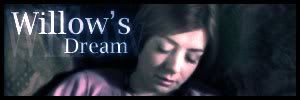
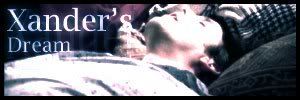
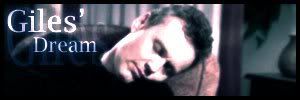
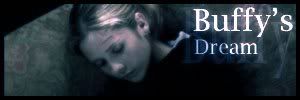
Plot
Bad Guy
Arc
Overall (10/10)
Plot:
In response to the enjoining spell that was used in the previous episode, the spirit of the First Slayer attacks the Scoobies in their dreams. While some have said this episode has no plot, I believe it does in the fact that is has a clear conflict and resolution. However, the plot is relevant to the series as a whole, and is executed in a clearly unique fashion.
The First Slayer worked alone. She fought alone. Buffy and the Scoobies, in Primeval, called upon her power and divided it up between them. The First Slayer reacts in this episode, fighting against Buffy and telling Buffy that the Slayer must fight alone. No friends. This, of course, plays into the series-long theme of isolation of the Slayer, but it also looks at Buffy at this point in time. The First Slayer was strong. Buffy needed three of her friends in the last episode. The First Slayer is telling her in this episode that Buffy should be strong, even without her friends. That she should be able to stand alone against the Big Bads, like Adam (And like Glory).
This is, of course, a conflict Buffy will struggle with consistently. In the next season, her friends will prove helpful in the final battle against Glory. However, it will be Buffy, acting as the Slayer, who ends up saving the day on her own.
Bad Guy:
The First Slayer is the antagonist. She represents the divergent philosophy of the Slayer. She comes into conflict with how Buffy is carrying out her duty, and she tries, in a hostile way, to guide her onto what she thinks is the appropriate path for Buffy. Buffy will reject this guidance at the end of the episode (Though she'll eventually come to accept it, to a point).
Arc:
This episode can best be described as a coda to S4. After the Scoobies have reaffirmed their group identity, this episode looks back at what they've been through and heralds what's to come. In some ways, this episode acts as an introspective piece here, at this midway point in the series.
Instead of forwarding the S4 arc, it forwards the thematic arc of the entire series. It's completely integral to the development of all four of the lead characters, as well as being pivotal to one of the primary themes of the series.
Overall:
A truly spectacular episode that consistently makes my Top 3 episodes list. Full of symbolism, metaphor, gorgeous imagery and direction. There are no misses here. And it benefits from multiple viewings, as a new layer gets uncovered every time I see it.
The style is flawless. For once, we get a depiction of dreams that actually seem dreamlike. Strange, out of place people and settings are taken in stride. Weird camera angles add to the confusion. It's an episode about sensation, and about the characters, themselves. It's about their experience in their own psyche. And it's the best on-screen illustration of dreams I've ever seen.
Not only that, there's a wealth of character development wrapped in metaphor and symbolism. Every line has multiple meanings, and even each shot has a wealth of important imagery. This is truly a treat for a television show.
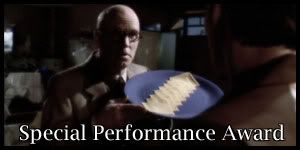
For the special performance award, let's give a hand to the Cheese Man. I take Joss at his word that he means nothing. And, yet, I can't help but try to ponder the symbolism of the cheese in this episode...
10 out of 10. No doubt in my mind. This is one of Buffy's finest hours.



